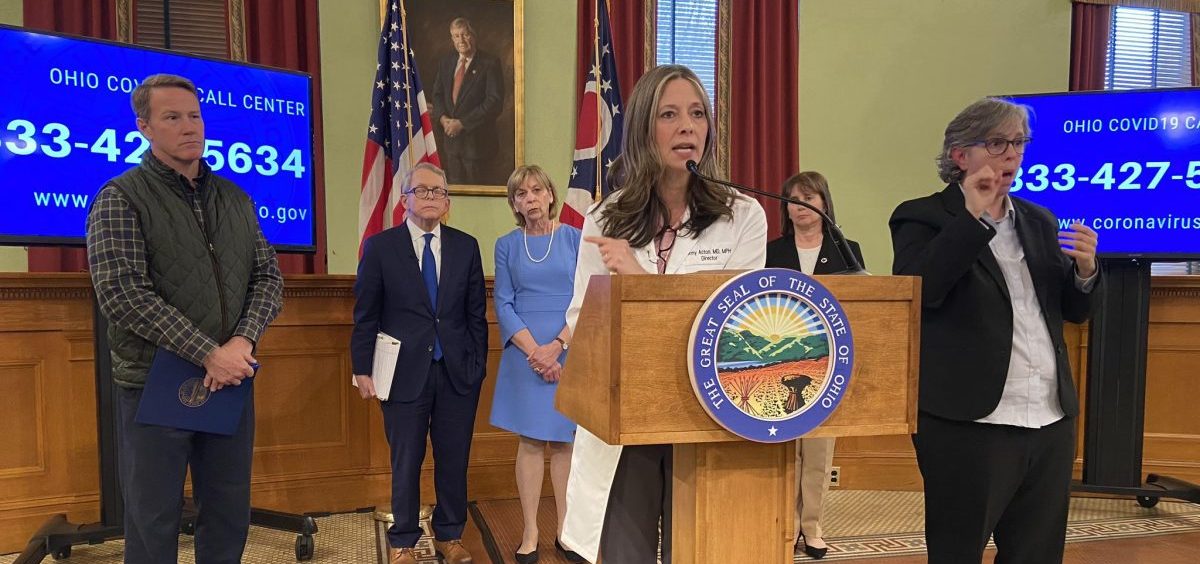News

Health Department Orders Elective Procedures Canceled
By: Gabe Rosenberg | WOSU
Posted on:
COLUMBUS, Ohio (WOSU) — Ohio’s Department of Health will issue a public health order telling medical centers to stop all elective surgeries and other procedures, in an effort to free up staff and equipment for dealing with COVID-19 coronavirus.
The state on Tuesday reported 67 confirmed cases of COVID-19 in 16 counties. Of those cases, 17 people have been hospitalized.
The state will consider non-elective procedures as those that can save a life, preserve a limb or an organ, prevent metastasis of a disease, or reduce risk of more severe symptoms.
Andy Thomas, medical director for the Ohio State Wexner Medical Center, says those guidelines emerged from a working group of medical experts advising the state.
Health Department director Amy Acton said the state’s efforts – which recently included postponing Tuesday’s election, restricting gatherings of more than 50 people, and closing all bars and dine-in restaurants – are necessary to prevent hospitals from being overwhelmed.
“There’s no scenario now by which we won’t have a surge,” Acton said. “But if we did nothing, the estimates were that 2.2 million Americans would die.”
Officials say that capacity will become a problem soon, with growing demand for beds, ventilators and materials for doctors. Hospitals are currently operating at 75% capacity, says Ohio Hospitals Association CEO Mike Abrams, which is normal for this time of year.
The concern, Acton says, is not just an influx of new coronavirus cases, but also other emergencies or pressing procedures that may emerge – including gun violence and pregnancy-related operations.
Acton added that Ohio has received $15 million in federal public health funding. Of that, $10 million will be distributed to about public health departments around the state.
The age range of Ohio’s COVID-19 patients is 14-86 years old, with a median age of 48. Of the cases, 26 are females and 41 are males.
Election Updates
At a press conference Tuesday, Gov. Mike DeWine defended the public health emergency order issued the night before. He said that thousands of poll workers were set to show up Tuesday – many of whom were over the age of 65, or who may already have the disease and not know it.
“Our goal is that everyone who wants to vote will be able to vote,” DeWine said. “Our goal is that nobody has to choose between their constitutional health and having to risk their health.”
The governor there are “good solutions out there” to replace Ohio’s primary election, either through General Assembly or the courts. He suggests that in-person voting happens June 2, as he recommended before Monday’s order, with an extended time for people to request and submit absentee mail-in ballots.
“I will insist upon a significant period of time so that people have ample opportunity to vote,” DeWine said.
The Ohio Department of Health makes the following recommendations to protect yourself from illness:
- Wash hands often with soap and water for at least 20 seconds; dry hands with a clean towel or air dry hands.
- Use alcohol-based hand sanitizer when soap and water are unavailable.
- Cover your mouth with a tissue or sleeve when sneezing or coughing. Avoid touching your eyes, nose, or mouth with unwashed hands.
- Stay home when you are sick.
- Avoid contact with people who are sick.
Ohio’s coronavirus call center is open to answer questions from 8 a.m. to 9 p.m. daily. The hotline number is 1-833-4-ASK-ODH or 1-833-427-5634.

